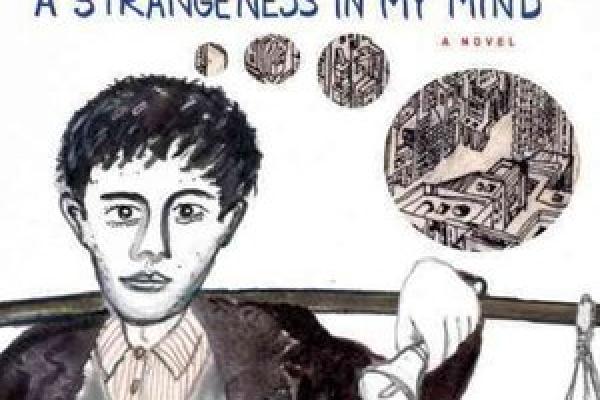WHILE OTHER Turkish writers choose to live outside the country, Nobel Prize-winning author Orhan Pamuk—except for short periods—still lives in Istanbul, Turkey, in the building where he was raised. It is not exactly a safe, secure life. He has already faced charges for making anti-Turkish remarks regarding the long-denied mass killings of Armenians by the Ottoman Empire during World War I. He fled the country for more than a year until charges were dropped (due in part to pressure from high- profile writers that included Gabriel García Márquez). And since then, numerous other writers and journalists have been arrested by the increasingly authoritarian government.
Pamuk’s newest and ninth novel, A Strangeness in My Mind, took him six years to write and release, as he has struggled against conservative forces who call him a “Western stooge.” Like Istanbul: Memories and the City, a memoir by Pamuk, A Strangeness in My Mind is a double portrait of the main character, Mevlut Karataş, and the city of Istanbul. It is a postmodern fairy tale, a mesmerizing odyssey, a coming-of-age urban fable.
Mevlut is a street vendor who sells a fermented wheat drink, boza, which became popular in the days of the Ottoman Empire. Through Mevlut’s prism we become acquainted with a city of 14 million—up an astounding 12 million people since Pamuk was born in 1952. Pamuk has described Mevlut “as a man of immense imagination ... he sees and feels things in the streets that no one else does.” He is a quietly observant Muslim, modest, shy, and with his own inner sense of holiness and of “strangeness.” Like Pamuk’s own character in Istanbul, Mevlut is a lonely dreamer, living outside of the mainstream, caught up in his own imaginary world, often being judged harshly by those around him.
Read the Full Article

